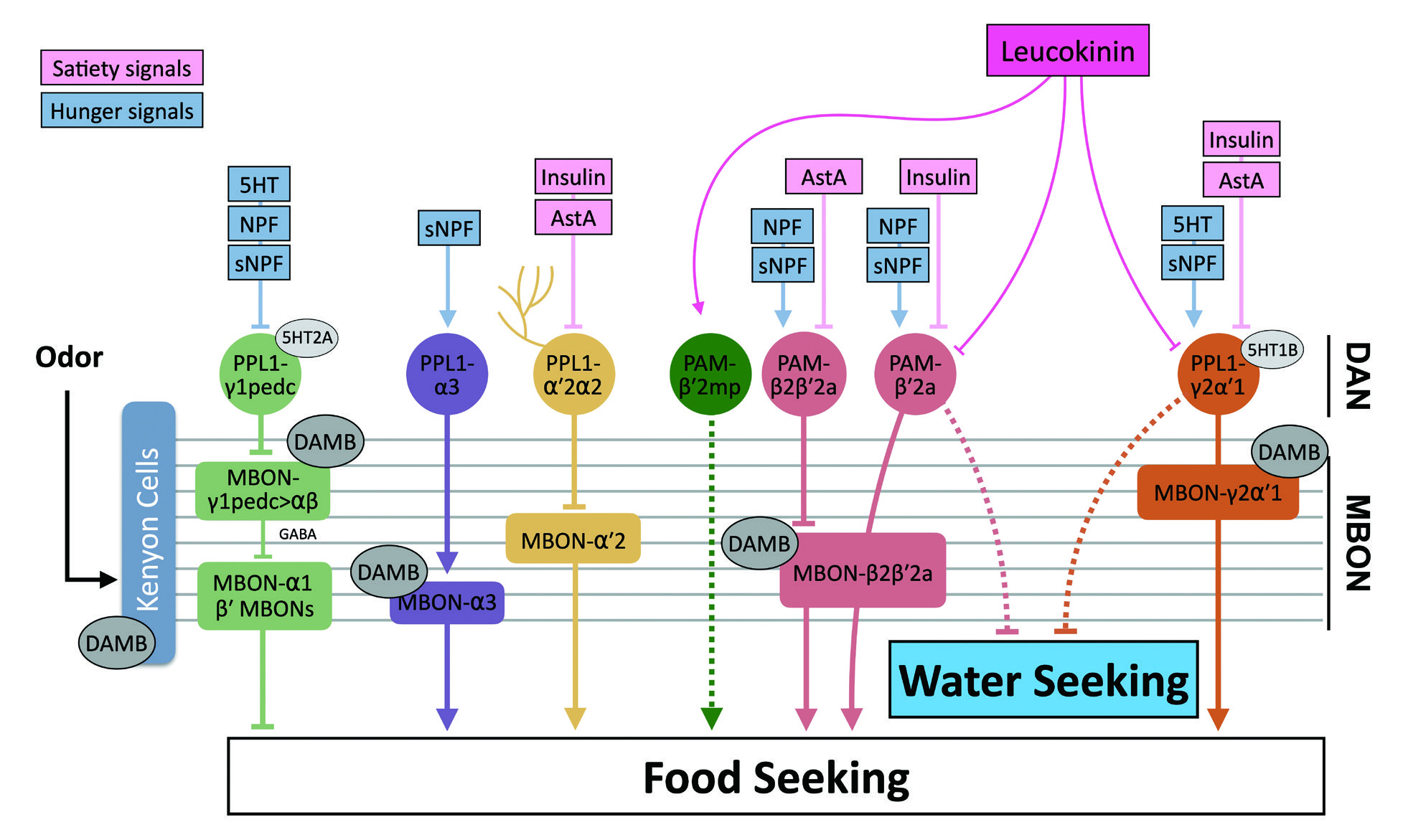林書葦 Suewei Lin

中央研究院 分子生物研究所副研究員
學歷
- 美國麻州醫學大學神經生物學博士(2011)
- 國立陽明大學遺傳學碩士(2004)
- 國立陽明大學生命科學系學士(2002)
經歷
- 中央研究院分子生物研究所副研究員(2020/8 ~ 迄今)
- 中央研究院分子生物研究所助研究員(2015/11 ~ 2020/7)
- 英國牛津大學博士後研究員(2012/3 ~ 2015/9)
個人勵志銘
I would like to dedicate this award to my research team, my current and former mentors, my colleagues at the Institute of Molecular Biology, my loving family, and countless friends who have provided unwavering encouragement and support throughout my scientific journey.
研究果蠅大腦的動機迴路 釐清分子和細胞機制
I study the fruit fly Drosophila to gain insight into how the brain processes both internal and external signals to make behavioral decisions, and how intricate neural circuits are established during development. Specifically, my research focuses on the mushroom body, a computational center in the fly brain that plays a critical role in learning and memory, decisionmaking, and sleep regulation. The mushroom body also acts as a motivational center that integrates diverse inputs, including sensory information, past experience, and internal physiological signals, to guide behavior.
Over the past five years, my lab has made significant progress in understanding the neural basis of motivation and behavior in the fly brain. We found that dopaminergic neurons in the mushroom body encode the desire for food and water, and we uncovered the role of a neuropeptide, leucokinin, as the first known thirst signal in the fly brain. Our findings have opened exciting new avenues for discovering novel molecular sensors of thirst and hunger.
In addition to investigating the neural mechanisms of motivation, we have also studied the intricate wiring principles that underlie the development of the mushroom body circuitr y. This network is incredibly complex, with subcellular axonal and dendritic targeting. By identifying a guidance molecule that affects the assembly of the mushroom body circuit, we have gained a deeper understanding of the molecular and cellular mechanisms that govern its circuit formation.
Our research provides a valuable conceptual framework for future studies of complex neural circuits and their assembly. By elucidating the principles governing information processing in the mushroom body, our work has the potential to shed light on how motivational drives and decisions are controlled in the brain, with implications for the treatment of disorders related to reward processing and decision-making.

得獎感言
I would like to dedicate this award to my research team, my current and former mentors, my colleagues at the Institute of Molecular Biology, my loving family, and countless friends who have provided unwavering encouragement and support throughout my scientific journey.

